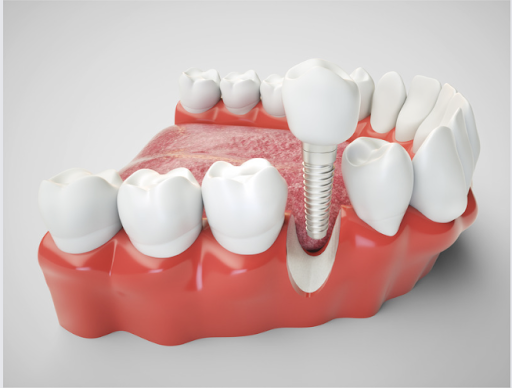Acid erosion of teeth has been all the buzz for the past several years, and with good reason. Acids are like kryptonite for teeth. They should be avoided or minimized to avoid damage to teeth from erosion.
Erosion is not reversible, so prevention is key.
Most people have only recently heard phrases like “acid erosion” and “wearing away of dental enamel” in the mainstream media and therefore have many questions.
Following are some of the most common questions we hear about this particular dental concern, along with the basic, general answers.
1. What is acid erosion of teeth?
Acids can cause you to lose tooth enamel, which is the hard coating of the teeth that protects the dentin underneath. Dentin is a softer, yellowish tissue.
2. What happens to your teeth because of it?
When the enamel is worn away, the dentin underneath is exposed, which may lead to pain and sensitivity. Tooth enamel is also whiter than the yellow tissue underneath, so as acid erosion wears away the enamel, you may be left with discolored teeth. If enough of the enamel wears away at the gumline, it can expose the roots of your teeth and weaken the overall structure, eventually leading to tooth loss.
3. What types of foods and drinks are most acidic?
Before we identify which foods and drinks are most acidic, let us explain the science behind the numbers.
They are based on the pH level of foods and drinks, which stands for “potential hydrogen” and is a measure of how acidic or basic the item is.
A pH level of 7.0 is considered “neutral.” Anything with a pH of less than 7 indicates acidity that damages teeth. A pH level greater than 7 is alkaline, or basic. This is an exponential scale, so something at pH 2 is extremely acidic as compared to something closer to a pH level of 6.
Acidic foods and drinks that we all consume include citrus fruits (lemons and oranges), berries, carbonated beverages, and spicy foods and spices. Even though they are common, they can eat away at your teeth.
As a matter of comparison, tap water typically has a pH level of 7; hydrochloric acid has a pH level of 1.5 to 3.5; and battery acid has a pH level of 1.
That being said, here are a few examples of the pH levels of some popular foods and drinks:
- Milk: 6.6
- Tea: 6.2
- Eggs: 6
- Beans: 6
- Black coffee: 5.3
- Beer: 4.5
- Red Bull: 3.4
- Mountain Dew: 3.2
- Wine: 3
- Gatorade: 2.95
- Orange Juice: 2.8
- Coke: 2.63
- Pepsi: 2.49
4. I always thought sugar was the problem, and nowadays all I ever hear about is “acid.” Were my mom and dad just trying to scare me when I was growing up?
No, they weren’t just messing with you. That’s just a simple way to explain it.
Here’s what happens: When you consume sugar, it combines with bacteria on the plaque on your teeth, forming acids. That’s why brushing your teeth helps. Doing so allows you to minimize plaque…that attracts sugars…that create acids…that wear away your tooth enamel…and cause discoloration, pain, weakness, cavities, and maybe even tooth loss. Long story short, yes, too much sugar is bad for your teeth.
5. Are diet colas OK?
No! They may not have sugar that causes cavities, but they are still high in acid and low in pH, leading to the erosion and staining of your teeth.
Sports drinks and energy drinks also may have negative effects. Even drinks we think are seemingly good for us, like orange juice, can still cause damage to our teeth due to erosion.
6. Which toothpaste is best to prevent acid erosion?
Many dentists recommend the Sensodyne brand to help prevent acid erosion of teeth, but we hesitate to offer a blanket suggestion for all patients. We would need to examine your teeth, gums, and hygiene habits in order to recommend a toothpaste and offer additional tips.
7. Are there any foods that neutralize the effects?
You would need 20 times more alkalinity to neutralize acidity in the body, but don’t let that discourage you.
You should minimize your overall consumption of acids, choose less acidic foods or drinks when possible, and follow a healthy oral hygiene routine. At the same time, you can try to neutralize the effects of acids on your teeth.
Foods that are neutral on the pH scale or have high alkalinity include:
- Water
- Milk
- Celery
- Cucumbers
- Spinach and other leafy greens
- Beets
- Apples
- Avocadoes
- Some types of cheese
- Most types of nuts
8. What can you do to reverse the damage?
You can’t really reverse the damage exactly, but you can prevent future acid erosion of your teeth. However, some cosmetic solutions may improve the appearance of your teeth, such as veneers, crowns, or even implants if you lost teeth.
9. Will tooth whitening help for cosmetic purposes?
Professional tooth whitening completed by a dentist or hygienist won’t further damage your tooth enamel, and it might improve the appearance of existing tooth enamel. In that sense, tooth whitening may make you feel better about your smile, even though it won’t make the effects of acids disappear.
If you are due for a cleaning or are concerned about acid erosion of your teeth, call us for an appointment. We would love to help you identify prevention methods to help preserve your teeth and improve your overall dental health.



